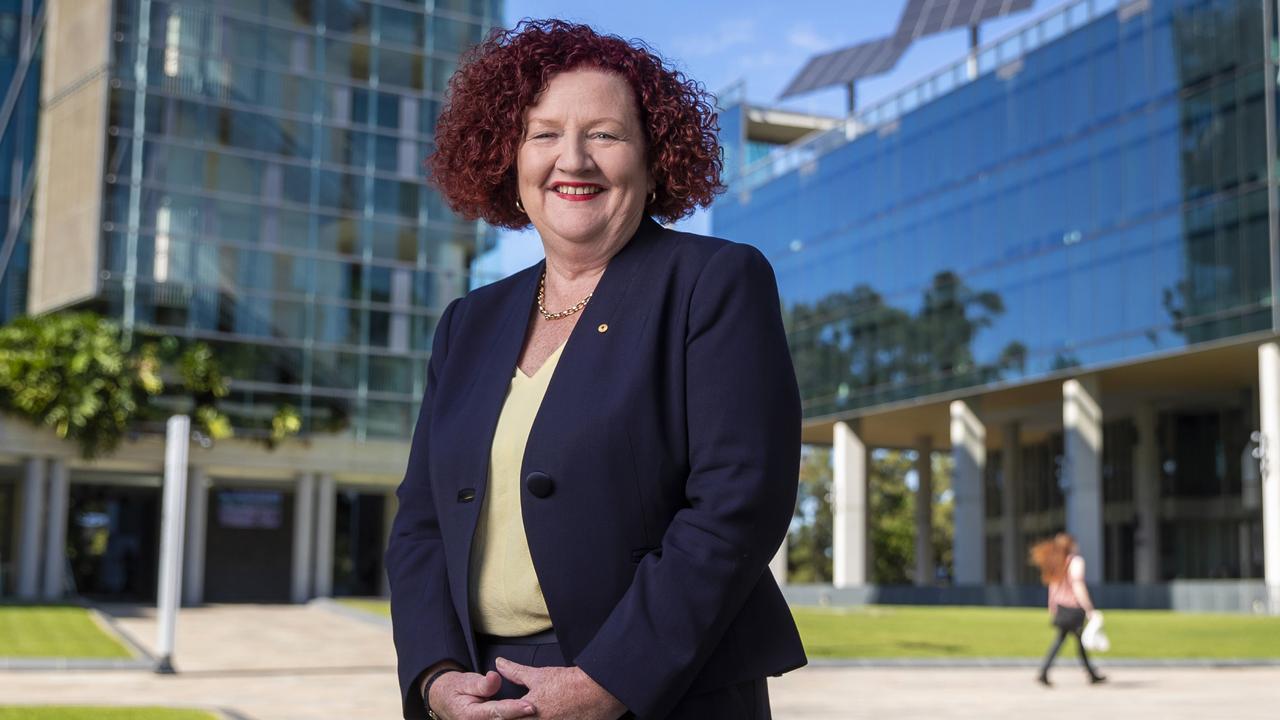Qld universities’ huge jump in cash from foreign students
One source of revenue filled Queensland universities’ coffers for years – one even tripling revenue from the lucrative source in just five years. Then borders slammed shut.
Tertiary
Don't miss out on the headlines from Tertiary. Followed categories will be added to My News.
Queensland universities’ $1.5 billion reliance on full-fare overseas students to fill their coffers has been revealed, with analysis showing it almost doubled in the past five years.
University of Queensland, Central Queensland University and University of Sunshine Coast saw the biggest increase in cash reaped for foreign students, which doubled to tripled in value.
It comes as the tertiary institutions face another year with a significant reduction in revenue streams due to the pandemic.
In 2014 Queensland universities were bringing in $800 million in fees from overseas students but by 2019 this had ballooned to almost $1.5 billion.

UQ’s take rose in that time from $311 million to $678 million, a 117 per cent increase, while Central Queensland University saw its revenue from foreign students rise 161 per cent to $175 million.
University of Sunshine Coast’s overseas students income tripled, but from a lower base of $19 million.
There were smaller increases of between 23 and 53 per cent for the other institutions, including QUT, Griffith University, James Cook and University of Southern Queensland.
Over the same period of time the total funding for universities in Queensland from the Commonwealth increased by 7 per cent.
UQ vice-chancellor Deborah Terry said the university had been prudent in managing international student income and pursued diverse sources of income.
“The university also took decisive action early last year to reduce expenditure and defer major capital works projects in response to the pandemic,” Prof Terry said.
She said 7700 UQ students studied offshore in semester two last year and those online options would continue in semester one.
“While applications have been tracking close to 2019 levels, the continuing uncertainty about travel will affect the number of international students deferring or declining their offers,” she said.

CQU vice-chancellor Nick Klomp said they were the most regionally distributed university in the nation, “operating in markets where other universities fear to tread”.
“International education is one of the revenue streams we use to help fulfil that mission, and to keep campuses in regional Queensland communities open for business,” Prof Klomp said.
In 2019, Queensland universities derived 24.7 per cent of their revenue from international student fees, compared to national average of 27 per cent, according to education department data.
But UQ and CQU were above the national average, with overseas student fees representing 30.9 per cent and 36.1 per cent of their revenue respectively.
An education department spokesman said COVID-19 posed significant challenges to universities and the international education sector.
“The development of a new national strategy will help chart a path for Australia’s international education sector for the next 10 years,” he said.





